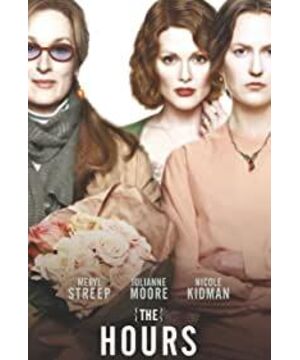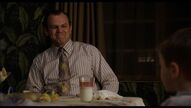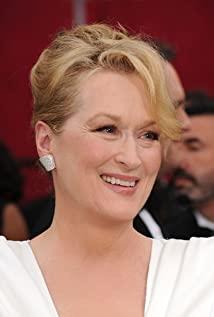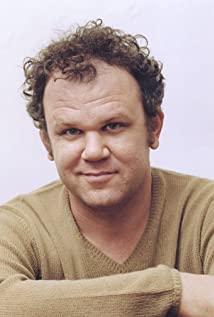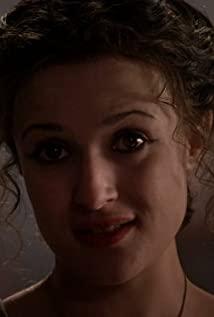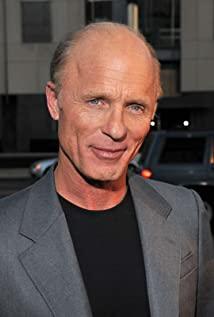In fact, as a projection of social thoughts in film culture, feminism has been quite limited since the first day it came out. Its purpose is to break down the suppression of female creativity in the film industry and the treatment of women on the screen. The deprivation of image has inevitably taken the stand of anti-film industrialization and questioned the dominance of ideology. As we all know, film serves the audience and is a projection of social ideology. From the perspective of psychoanalysis, it is the practice and release of the spirit. It aims to enable the audience to gain self-identification or to satisfy the audience’s desire to "peep". Most of the workers are men, and in the social structure, men occupies a strong position, which makes film production inevitably cut into the masculine perspective. As a representational narrative language and a popular form of entertainment, film most clearly embodies the constraints of ideology. At the same time, in a developed industrialized society, film must be conducive to consumption and anaesthetize and corrode the audience to the maximum. It is transformed into a "subject" and is further incorporated into the language and ideological order of the bourgeoisie, becoming a part of the "state apparatus". Feminist criticism attempts to achieve female subjectivity by changing the form of films, but actually embarked on the road of "heterosexuality" of women, let alone providing a convincing code for film narration.
"The Moment" is unanimously considered by critics to be another great impact of British cinema on American cinema after Sam Mendes. It started as a stage play by director Stephen Dedley and screenwriter David Hale in the United Kingdom. The former’s debut was "Billy.Elliot" (Billy.Elliot), which caused a sensation in 2000, and the latter had a reputation for creating a series of works reflecting British reality long before turning to film production. There is no shortage of stunning works such as Louis Mahler's "Damaged" (Damaged) in the adapted screenplay.
Although it is a completely male film, "The Moment" still embodies a new pioneering of biopics, and it is also considered a new masterpiece of feminist film. With the help of a novel "Mrs. Dalloway" by the British female writer Virginia Woolf, the film connects the fate and situation of three generations of women, and tells the common ambivalence of women who desire independence and are in trouble. The film cleverly sets the plot in the day of women from three different eras. The female writer Woolf in 1923, the housewife in 1950 and the contemporary women of New York in 2001. The husbands and lovers they met were tolerant and tolerant. Good and willing to live in harmony, but women’s inner loneliness and bitterness are completely incomprehensible and difficult for men to communicate. The psychological connection of the three women makes them look like images in a mirror, reflecting each other across different time and space, thus metaphors the long journey of women's spiritual independence.
A positive significance of the appearance of "The Moment" is that we can rediscover the thirty years that have passed since the beginning of feminist liberation, objectively trace the 30 years of feminist film criticism, and experience feminism. The call for doctrine has also returned from radicalism to calm and sincere thinking. We can clearly see that in "The Moment", the core of feminist films is no longer the fierce resistance and self-liberation at the beginning, but it is revealed in self-identity while maintaining firm individual independence. Heavy anxiety and confusion. This change is a reflection of the emotions of the post-feminist era. After individuals seek self-reliance, it is difficult to seek identification. It reflects to a certain extent that women’s repression is no longer threatened by men, but more The confusion from the self and the loneliness after being separated from the male space.
1. Same-sex complex
In "The Moment", the three protagonists all have a kissing action with the same sex. One of the three protagonists of the film, Virginia is one of the enlightenments of feminist thinking. According to historical records, she had a homosexual experience. The statement belongs to bisexuality. On the surface, it seems that Laura kisses the female neighbor with great chance, but the rhetoric of the film still shows that she has the budding homosexuality. Clarissa is openly gay, has lived with her lover for ten years, and gave birth to a daughter through artificial insemination. The film reflects the attitudes towards homosexuality in different eras from another angle. The same-sex kissing (or romance) in the film is just a symbol, a symbol that needs love, vitality, and life.
After the introduction of feminist views, women’s films became accustomed to focusing on multiple aspects of lesbian life, talking about their rebellious desires, the pain of being hurt by love, and the sentimental experience after parting. Although the people's sophistication in the play always inevitably looks coldly at the crowd, the authors bravely hold on to women's positions and are concerned about women's emotional dilemmas. They fight for their "legal" rights in the world of stories, so that same-sex love is no longer difficult to express. In the eyes of a considerable number of feminists, the family system of heterosexual marriage is far from being as sacred as imagined. It is more like a gentle knife in the male patriarchal culture, disguised as a natural personality, imposing meticulous suppression and coercion. Therefore, movies that succumb to it will inevitably wear a poignant and tender mask, describing the love of men and women as romantic as songs. The "comrade" movie gives us another perspective, looking at the hypocrisy and tyranny in our civilization from a more life-threatening standpoint, and at the same time makes people feel the true brilliance of female personality. But from another level, the exaggeration of the same-sex complex just proves the helplessness and sadness of feminists as an independent individual. While refusing to be a traditional accessory, they have not found real happiness, but can only Find solace in the same-sex complex.
2. Death
The biggest theme of the film is death. It starts with Virginia's suicide by throwing the river in 1941 and ends with Laura's suicide, interspersed with the whole process of Clarissa's suicide attempt. Virginia said to visiting relatives: "I might want to kill the protagonist in my book." Later she explained: "Someone must die before others can cherish the value of life." The illusion still reflects the longing for life through the thick tendency to death. In the parallel lines of the three female characters, Clarissa has a contrasting relationship with two other women: Virginia and Laura both "overcome" her husband's love and seek the last detachment, and Clarissa is trying to give one who is already dead. The people on the edge are warm. The three suicides have a fatalistic view, not because of lack of love, but a kind of emptiness and loneliness that even love cannot make up. This is a kind of irrational despair, and it is also the root of feminism, that is, women cannot use men's love as a source of self-worth.
At the end of the film, the three heroines have faced life calmly, those hesitation and pain no longer exist, although personal choices are different-Laura chose to stay away, Virginia chose to die, and Clarissa chose to accept. But in the end, they all realized the dialectical philosophy of the meaning of life through a certain way, and re-examined their own choices. Clarissa understood by listening to Laura's spiritual monologue, while Laura was turned away from her family for many years when she returned. But moved (in fact, from a certain perspective, the different choices of these two characters in life are the reason for each other's pain and regret in the future), they see the commonality of different choices. Virginia is through her own detached thoughts-in the eyes of others it may be a mental illness, in fact, this is another life (his sister once said to her in the film: He has two kinds of life, one is living in In reality, there is still living in his novels). As Laura said: "What's the use of regret?" "This is what I can bear." At the time, that was the only option. That is to say, no matter which kind of life you choose, pain always exists, happiness is always a moment (Clarissa also said: I thought at the time, this is the beginning of happiness. I did not expect that this is happiness, happiness is at that moment), All they can do is face it bravely, cherish everything, and don't escape from life. Everything is just like what Virginia said at the end of the film, and then throw it away after comprehending the truth. I think the abandonment here does not mean denying the existence of all values, but abandoning the shackles that are entangled around and in the heart, and it is also a release (although unsatisfactory) for others, even through death. No matter which choice is at this time, he is calm. The last depiction of the three heroines is detached and tranquil: Laura and Clarissa had peaceful and calm smiles on their faces before turning off the lights, and the surrounding colors and atmosphere were soft and warm, and there was no longer anything compared to the past. Depressed and cold. And the trivial light from Virginia's slowly concealed stream, coupled with the piano sound of flowing clouds, is full of a kind of cherishment and perception of life. There is no fear of death in the sense, but full of vitality.
3. Telepathy
The character setting of the film has a subtle connection. To be precise, it is a kind of similarity and repetition of fate or character, which is implied through close-ups, props and editing, and the performance of actors, producing a Freudian dream effect. This connection transcends gender differences, and even transcends identity and status, which is a universal phenomenon. In fact, apart from the three women who are highlighted in the film, the settings of each of the different characters are worthy of fun (if you pay attention to carefully compare the different characters). For example, Richard, from a certain perspective, he is a masculine manifestation of Virginia, that is to say, men and women have the same confusion about the experience of life emotions (such as his words before suicide and Virginia’s last words It's quite similar, and Virginia said a very important line in the film: the poet will die). Or this can also be understood as a psychological contrast (Richard remembered his childhood before committing suicide, and perhaps felt a repetition of a certain tragedy, the editing here is particularly subtle) Perhaps this is complementary to each other. Another example is the maid and Clarissa in the Virginia era. Their similarities are reflected in the "knock on the egg" (you can experience the similarities between the characters in the two scenes) and the editing of "open the door". The editing at the beginning of the film has revealed the similarities and repetitions in the nature of this character. The two different characters before and after each shot switch show a kind of repetition in the narrative at the back of the film (you can find that the characters in the editing are in The movements are very continuous), I think the purpose of this aesthetic treatment is to show a reality that transcends time and space, that is, a universal and universal reincarnation of fate. So this film is not only a film about women’s choices, but also about life and choice in a broader sense, about liberation and love, so here, death becomes salvation, the poet will die, for a kind contrast, for other would live better. It is precisely because of the death of Virginia and Richard that they and their loved ones are freed.
4. Love and family
feminist movies are usually based on the subversion of social structures and traditional family models. This model is often seen as the kingdom of "male patriarchy", and women are adjuncts and second-class.
The opening set of three interwoven long shots ended in Virginia. She came downstairs and lied to her husband. When the other party forced her to eat, Virginia again asked her to go upstairs to write on the grounds of sudden inspiration. Although her head was slightly tilted and her mouth turned slightly, her gaze was completely different from that of her servant and sister later-husband and wife. Although life is troubled by her mental illness history, she is still happy-it is not difficult to see their affection from Virginia's childlike snickers at her husband about her helplessness.
At the end of 1923, Leonard and Virginia sat down by the fireplace. When Leonard asked: "Am I stupid about this question?" Virginia's attitude towards him was obviously different from that of others, and she answered seriously: "Death is to highlight the value of life, and to be compared." My sister felt that her Crazy, the servant thinks she is confused, but being with her husband and sitting quietly opposite her is a great happiness for her, because he understands her and loves her-even if he quarrels loudly at the station because of where to go, in front of her husband She is still happy-this coincides with the later, old Laura's evaluation of Clau Lisa, "You are a lucky woman".
At the end of the other scene, Laura was sobbing secretly while playing with her husband. At about this moment, she clearly looked at herself in the mirror-the self in her heart-which decided the major choice of life. Moore's performance in this scene is superb and unparalleled.
Laura, who entered the bedroom after removing her makeup, was obviously old under the dim light. Then the end of the scene, she appeared in the elderly. What Claurisa puzzled is that since this old woman knows that abandoning the family and abandoning the child is the worst thing to do as a mother, she can't regret everything she has done. Perhaps, Claulysa, who survived in a compromise between the spiritual world and the physical desires, will never understand. On the contrary, her daughter gave Laura a warm hug, a wonderful woman who lives for herself.
Fifth, the fate of
former Virginia from a walk, a complaint annoyed her husband, but soon the heroine once again touched the hearts of all of its energy. "She's dying..." Virginia muttered silently, and the student road team passing neatly behind her hinted at the passage of time, even the rhythmic flowers and plants when the breeze blew. Pedestrians walked down the stairs in front of her, all from the fork on the right hand side, while she was sitting alone on the bench but corresponding to the fork on the left hand side. A low pillar in the middle seemed to be destined to isolate her from the crowd.
Just like when Leonard was chasing Virginia, he didn't know why he chose the direction of the station instead of the other side, although he hesitated for a moment-everything was fate. The next scene at the station undoubtedly pointed out the central idea:
"I have no obligation to eat for others!" "I have the right to choose where I live!" "This is human nature!" "I am dying every day in this ghost place!" "The heart is sinking into a quagmire of endless darkness!"...In the face of Virginia's eruption, Leonard's love and tolerance for her was moving. When the train to London drew in, she finally compromised. —— Her personality is not tolerated by society and relatives, and can only bloom to her beloved husband. However, love can't bear her to let him bear all the pain, so she converges again and suppresses herself again.
At the end of the scene, Virginia said dryly, "You can't steal peace from escaping from life!" screamed loudly. This is not only to talk about herself, but also to sum up Laura, who just gave up committing suicide, to face her life again, and it is more like admonishing Claulysa who was frustrated by the appearance of his love rival Louis. In the end, Claulysa gradually calmed down and turned over. The past is gone-the time has long since passed, and it's just futile to keep thinking about it.
The plot flowed to the conversation between Crowlisa’s mother and daughter, “Wake up some morning, and you find yourself in the beginning of happiness, and discover that there are infinitely wonderful possibilities in the future, but you are wrong-that moment is happiness.” K After the love rival left, Laurieza bravely admitted that she had lost Richard-after all, they had been happy.
As a genre of contemporary film theory, the unique cultural background of feminist criticism determines its fierce critical stance and highly comprehensive methodological basis. It starts with the analysis of classic Hollywood movies, criticizing and trying to subvert the language and ideological structure of the developed capitalist society, and its deconstruction and criticism of mainstream movies are sharp and profound. As a purely critical theory, the theoretical activities of feminism are consciously alienated from the practice of film creation in terms of standpoints and methods, that is, it does not constructively but critically conducts a detailed deconstructive analysis of Hollywood films. Maintained the self-sufficiency of the theoretical form and the independence of political and aesthetic criticism.
When the social structure has not been transformed as expected, the industrial nature of the film has not changed substantially, and patriarchy remains the same. Feminists feel irritable and even unable to control their emotions. They feel that their bodies carry a heavy burden. Survival pressure and anti-traditional writing itself continue to stimulate film creation and continue to seek space for survival. Of course, as a considerable number of social problems are solved, feminist films are also constantly changing their forms.
In recent films, feminist films have begun to focus on portraying powerful, complex and important female images to stimulate female audiences to rethink. Women began to accept their own physical characteristics, and they tried to "turn from an independent, single woman who dared to think and dare to become a mother, but still hope to maintain their own share of freedom." It is a challenge to the view of women's subordinate status and the description of "power" in all western folklore. In fact, in the past period of time, although many feminist films are bold, unrestrained, and dare to break all taboos and established concepts, they have caused certain damage to their own image. The expression of female desires and gender consciousness are often repeatedly expressed and become The hotspot of controversy. Just take the most controversial "Roman History" as an example. This film directed by female director Catalina Brera depicts a middle school female teacher named Mary who is depressed because of her boyfriend’s indifference. Mi Xin Huan, in a series of distorted and pathological experiences, attempts to seek relief and comfort, showing a kind of abnormal psychology. It is true that Brera “expressed a basic feminist request: to challenge and question the patriarchal consumerization of women, and to give women a self-sufficient expression space for their desires.” However, this request and rebellious irrationality and perversion The transformation itself has also embarked on a questioned path. Therefore, it has aroused fierce controversy in France, and there is a clear distinction between approval and criticism. Some people think that "Roman History" conveys a deep sense of pessimism, and its grasp of the whole world finally fell into nothingness." This sharp criticism reflects the denial of the paranoid creative tendency of the film. However, "The style of French film is the style of each person". This sentence is also appropriately used in the active and multi-directional creative exploration of female directors.
In addition, the commercialization of the film has influenced the pure stance of feminism with its strong tolerance. Many masculine themes are transferred to the superficial female stance, supplemented by a certain degree of caring, it is enough to put on the feminist stance. The outerwear, on the one hand, eliminates the resistance of female audiences, and even arouses their care and curiosity, on the other hand, it attracts the audience of Yuqi to enter the venue. For example, the famous feminist movie "The End of the Road" is referred to as old wine and new bottle. However, the traditional road movie type is renovated, and the male characters who challenge the law to the end of the world are changed to females. The core is still only one movie. Sexual genre movies, the theme is also the price of pursuing self and liberation, the self-destructive nature of violence, the contradiction between individual freedom and social norms, etc. The key is to put two women as the protagonists, so that the non-girl rights activists are satisfied with the goal of "what men do, women can also", but they stay away from the unique feminist values advocated by feminism, such as responsibility, equality, and respect.
The use of feminist analysis in movies usually defines film authors as a reproducer who has obvious feminine characteristics and attempts to proceed from their own desires. Usually they also target specific female viewers and use various classic psychological analyses. To illustrate the operation of the film text, this is an adventure with limitations, which indirectly hinders the breadth and depth of the film's theme. In films, if feminists only express their disappointment with men by expressing the frustrations of women in social life, or deliberately challenge the boundaries between pornography and art through bold and straightforward shots and taboo topics. As a declaration of her own female independence, she fell into a vicious circle of shooting purely for struggle and proof for proof.
In this hard and alienated world, a woman can refuse to invite a dance and let loneliness be silent. But we shouldn’t stop pursuing care and love; even if we don’t have to resort to secular approval, we should not stop the affectionate gaze, even if we don’t pretend to be a man’s lust. Circulation, or the careless stubbornness of the two hands behind the crowd, has already moved. Even women themselves can hardly give up the pure and graceful customs. Women are destined to be beautiful, and love is destined to last forever. The world of women needs calm introspection, and at the same time, it needs real attention from the world of men.
View more about The Hours reviews


